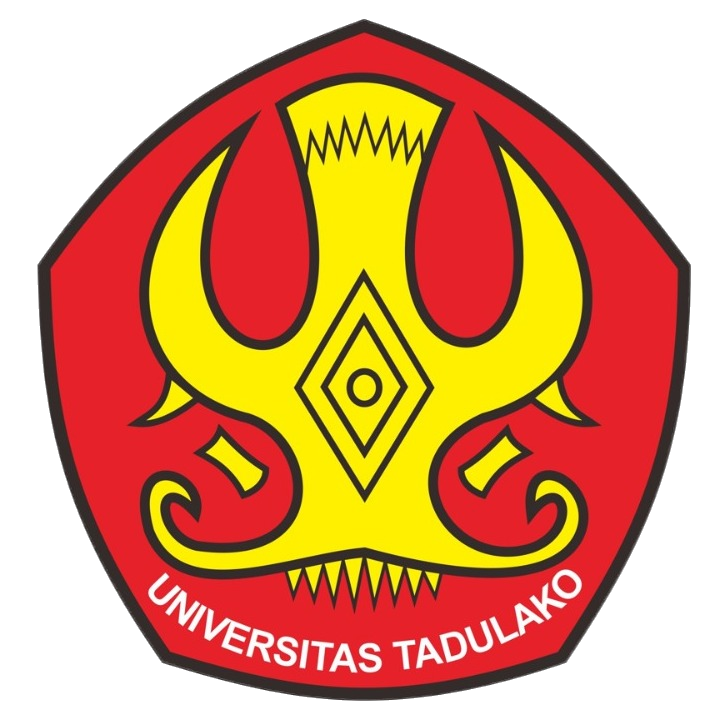Implementation of Electronic Government in the Department of Communication, Informatics, Encryption and Statistics, Pasangkayu Regency
Kata Kunci:
Electronic Government, Information Communication Agency for Coding and Statistics, PasangkayuAbstrak
Generally, communication between social institutions and the government in government offices takes place conventionally, face to face. As time goes by and advances in technology also bring innovation with the birth of Electronic Government, with the hope of opening up new opportunities to improve the quality of public information services that are effective and efficient, transparent, and without having to meet face to face. This has become a scourge in almost all regions in Indonesia, including Pasangkayu Regency. On this basis, this research aims to determine the implementation of Electronic Government (e-Gov) in the Coding Information Communication and Statistics Service of Pasangkayu Regency. This research and writing uses a qualitative descriptive type. The concept applied refers to the theory put forward by Sharon regarding e-Gov, namely containing aspects of Strategy, Policy, Data, Cost Factory, Skills, Technology. The types of data are primary and secondary data. Then the technique used is in line with the needs of the type of data. The result of this research is to identify the application of e-Gov in the Diskominfopers of Pasangkayu Regency based on theoretical aspects by Sharon. Starting from Strategy, in the form of outreach to the community to maximizing synergy between OPDs to create e-Gov. Policy, refers to the Presidential Instruction and its derivatives which are realized in the Strategic Plan (Renstra) so that the flow of Diskominfopers is clearer. Data, relates to the information provided and can be accessed on the website. Cost Factory, Diskominfopers has a Strategic Plan which explicitly aims to develop everything from HR elements to products that support information technology. Skills, training in the form of BIMTEK and education for staff. Technology, there is public network support (wifi) and independently by utilizing the local internet network.
Referensi
Ali, Edwar. 2012. “Strategi Mengembangkan E-Government Untuk Pemerintahan Daerah” 1 (1).
Anwar, M. Khoirul, dan Asianti Oetojo S. 2004. Aplikasi Sistem Informasi Manajemen bagi Pemerintahan di Era Otonomi Daerah SIMDA. Yogyakarta: Pustaka Pelajar Yogyakarta.
Arikunto, Suharsimi. 2002. Prosedur Penelitian Suatu Pendekatan Praktik. Revisi 5. Jakarta: PT Rineka Cipta.
Avison, David E., dan Guy Fitzgerald. 2006. Information Systems Development: Methodologies, Techniques and Tools. 3rd ed. McGraw-Hill Higher.
Cahyadi, Adi. 2003. “E-Government: Suatu Tinjauan Konsep dan Permasalahan.” The Winners 4 (1): 1. https://doi.org/10.21512/tw.v4i1.3796.
Dawes, Sharon. 2008. “Introduction to Digital Government Research in Public Policy and Management.” Dalam Digital Government, disunting oleh Hsinchun Chen, Lawrence Brandt, Valerie Gregg, Roland Traunmüller, Sharon Dawes, Eduard Hovy, Ann Macintosh, dan Catherine A. Larson, 17:103–25. Integrated Series In Information Systems. Boston, MA: Springer US. https://doi.org/10.1007/978-0-387-71611-4_6.
Habibi, Muhammad. 2018. “Dinamika Perkembangan Model E-Government.” Preprint. INA-Rxiv. https://doi.org/10.31227/osf.io/kztm9.
Handika, Reza. 2017. “PROGRAM PASCASARJANA MAGISTER ILMU ADMINISTRASI FAKULTAS ILMU SOSIAL DAN ILMU POLITIK UNIVERSITAS LAMPUNG 2017.”
Holmes dan Douglas. 2001. E Gov: E-Business Strategies for Government. London: Nicholas Brealey Publishing.
Indrajit, Richardus Eko. 2006. Electronic Government : strategi pembangunan dan pengembangan sistem pelayanan publik berbasis teknologi digital. 3 ed. Yogyakarta: Andi.
———. 2016. Electronic Government. https://www.academia.edu/30100450/Electronic_Government.
Lodik, Randy Pebrianto. 2016. “Penerapan Electronic Government Dalam Peningkatan Mutu Pelayanan Pada Unit Pelaksanaan Teknis Teknologi, Informasi dan Komunikasi Universitas Tadulako studi kasus website Universitas Tadulako.” Palu: Tadulako.
Miles, Matthew B., A. Michael Huberman, dan Johnny Saldana. 2014. Qualitative Data Analysis. SAGE.
Napitupulu, Darmawan, Muhammad Ridwan Lubis, Erika Revida, Surya Hendra Putra, Syifa Saputra, Jamaludin, Edi Surya Negara, dan Janner Simarmata. 2020. E-Government: Implementasi, Strategi dan Inovasi. Yayasan Kita Menulis.
Ndraha, Taliziduhu. 2003. KYBERNOLOGY (ilmu pemerintahan baru). Cet.1. Jakarta: Rineka Cipta.
Nugraha, Yenny Martha Diana. 2021. “Diajukan Sebagai Salah Satu Syarat Untuk Mengikuti Ujian Oral Comprehensive Strata I pada Fakultas Ekonomi dan Ilmu Sosial Universitas Islam Negeri Sultan Syarif Kasim Riau.”
Nugroho D., Riant. 2006. Kebijakan Publik di Negara-Negara Berkembang. Jakarta.
Prafitasari, Ardina, dan Ferida Asih Wiludjeng. 2018. “Organisasi Kepemudaan yang Efektif dan Efisien dalam Meningkatan Partisipasi Masyarakat Desa Darungan Kecamatan Wlingi.” Translitera : Jurnal Kajian Komunikasi dan Studi Media 4 (2): 31–48. https://doi.org/10.35457/translitera.v4i2.351.
Rahayu, Wiwi. 2013. “Implementasi Kebijakan Electronic Government pada Pemerintah Daerah Studi Kasus Dinas Perhubungan Komunikasi dan Informatika Kabupaten Parigi Moutong.” Parigi Moutong: Tadulako.
Safitri, Nurul Wahida. 2016. “PENERAPAN E-GOVERNMENT DI PUSAT PELAYANAN INFORMASI DAN PENGADUAN KABUPATEN PINRANG.”
Sosiawan, Edwi Arief. 2008. “TANTANGAN DAN HAMBATAN DALAM IMPLEMENTASI E-GOVERNMENT DI INDONESIA.”
Suaedi, Falih, dan Bintoro Wardianto. 2010. Revitalisasi Administrasi Negara : Reformasi Birokrasi dan e-Governance. 1 ed. 351 SUA r. Yogyakarta: Graha Ilmu.
Sugiyono. 2008. Metode penelitian kuantitatif, kualitatif dan R & D. Bandung: Alfabeta.
———. 2011. Metode Penelitian Kuantitatif Kualitatif dan Kombinasi (Mixed Methods). Cet. 1. Bandung: Alfabeta.
Tryanti, Witya, dan Aldri Frinaldi. 2019. “EFEKTIVITAS IMPLEMENTASI E-GOVERNMENT DALAM PELAYANAN KEPENDUDUKAN DI DINAS KEPENDUDUKAN DAN PENCATATAN SIPIL KOTA PADANG” 1 (3).
Wibawa, Samodra. 2009. Administrasi Negara: Isu-Isu Kontemporer. Yogyakarta: Graha Ilmu.
Wismanu, Rendra Eko, Muhammad Nuh, Nurjati Widodo, dan Nana Abdul Aziz. 2018. “Model Inovasi Pemerintah Daerah Bidang Pelayanan Perizinan dalam Mewujudkan Smart City (Studi Pendekatan Sistem Dinamik pada Pemerintah Kabupaten Sragen).” Jurnal Ilmiah Administrasi Publik 4 (4): 369–76. https://doi.org/10.21776/ub.jiap.2018.004.04.12.




